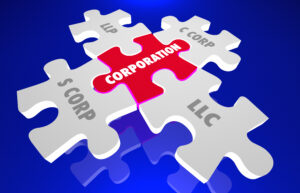What Is Section 1202 Stock?

The Protecting Americans From Tax Hikes Act of 2015 (PATH Act), which was signed into law late last year, finally made several temporary tax breaks permanent. Among the tax breaks included is the Small Business Stock Gains Exclusion, known as Section 1202.
So what is the Small Business Stock Gain Exclusion? Section 1202 is designed to help small businesses, new ventures, and specialized small businesses by encouraging individual investors and investment companies to place their financial backing into these companies. Because these investors are taking a risk by putting their money behind these companies, the Internal Revenue Code offers them relief via Section 1202.
Thanks to the new PATH law, the exclusion of 100 percent of the gain on the exchange or sale of qualified small business stock (QSBS) that has been held for more than five years and which was obtained after September 27, 2010 is now permanent. In addition, the PATH Act also permanently extends the rule that eliminates the 100 percent excluded QSBS gain as a preference item for Alternative Minimum Tax (AMT) purposes.
You can learn a lot more about this important change and about Section 1202, by clicking here. You can also contact us at GROCO if you think that you might qualify for Section 1202. Just call us at 1-877-CPA-2006 or contact us online. We’ll take you through the analysis of the best way to take advantage of this section of the tax code. In addition, many states, including California, have exclusions available, but each state is a little different from the federal requirements, so be sure to contact us to find out how we can help you.
The Pros & Cons of S-Corporation Status
The Pros & Cons of S-Corporation Status If the number of shareholders in your corporation is small, you may think that becoming an S-Corporation is the right move, but you should weigh the advantages and disadvantages first. Advantages of S-Corporation Status One of the main advantages of S-Corporation status is that it avoids the double…
What is Sole Proprietorship?
What is Sole Proprietorship? A sole-proprietorship is a business that is owned by one person or by a husband and wife. Unless the business is formed as a corporation or a limited liability company, it will be a sole-proprietorship by default. One of the biggest advantages of operating a business as a sole-proprietorship is that…
Conducting Your Business as a Corporation
Conducting Your Business as a Corporation The limited personal liability of a corporation isn’t ironclad. In the event the business ends up owing more money to a creditor than it has the ability to pay, the creditor will then look to the business owner. Under a legal theory known as “piercing the corporate veil,” if…
Budgeting For Your Business
Budgeting For Your Business “Your business opportunities improve with the use of a budget, a powerful tool which assists you in achieving your financial goals.” Introduction: A well-designed budget helps you: Predict income and expenses Control cash flow Communicate financial goals As an entrepreneur, you may not have the time or financial expertise to establish…



